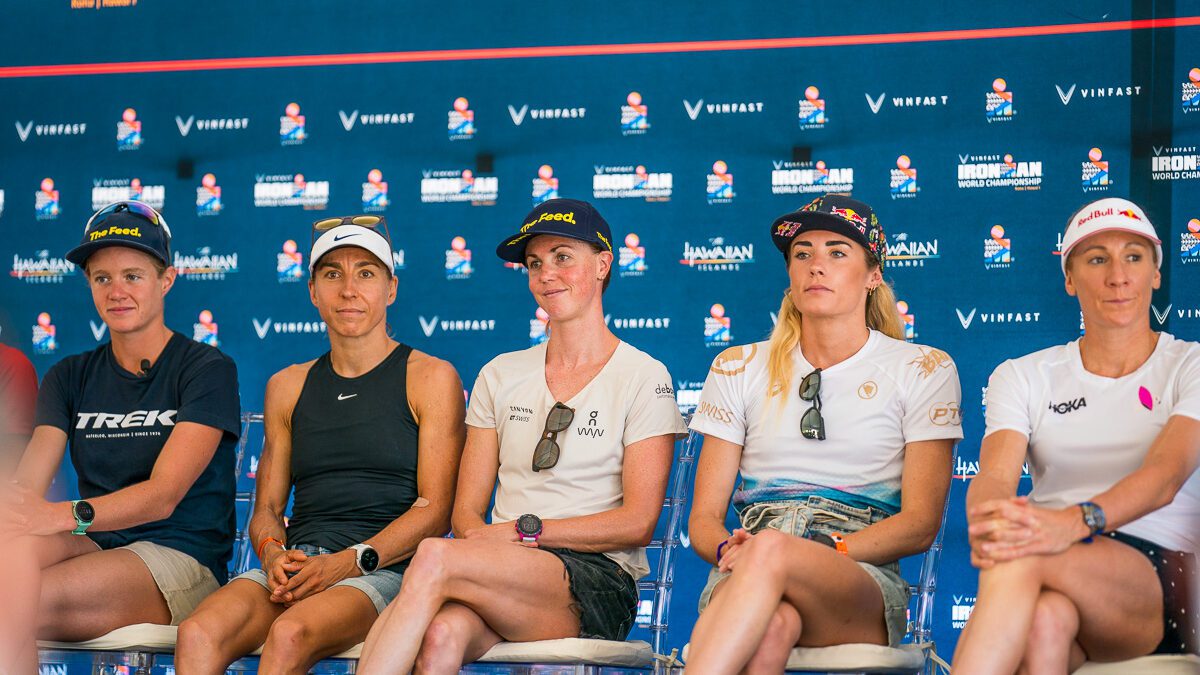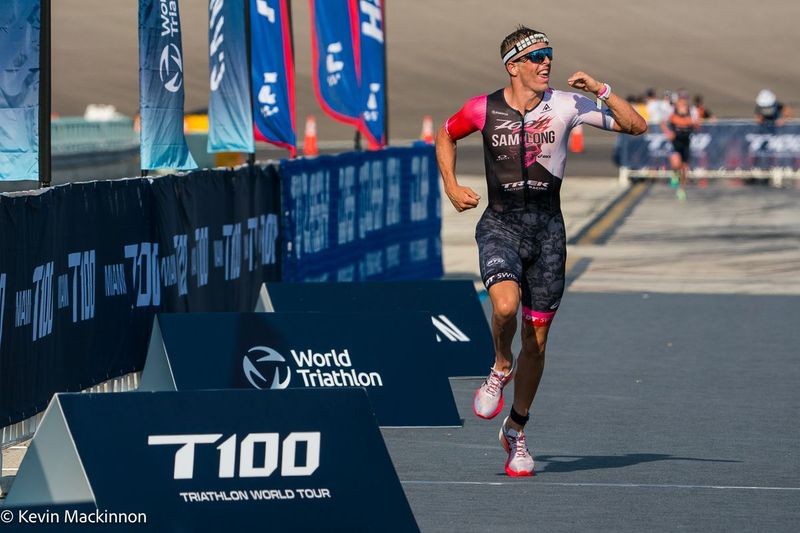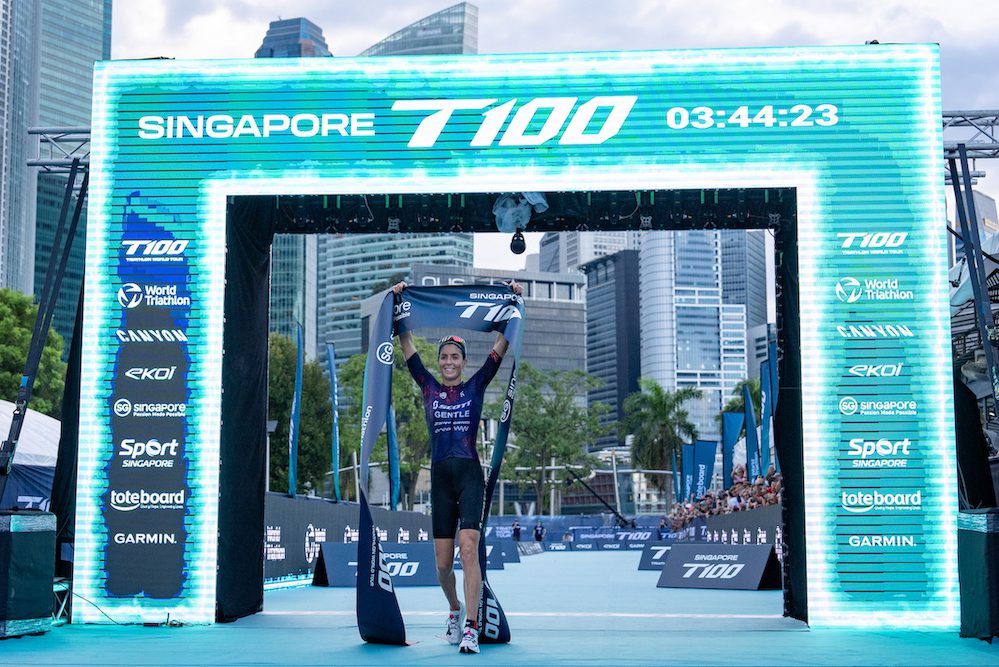How to build the perfect professional triathlete
Think you have the talent and fortitude to turn pro? You might want to go over this checklist to see if you have what it takes to make it.
 Photo by:
Kevin Mackinnon
Photo by:
Kevin Mackinnon
Although they are rare, Canadian professional triathletes do exist. There might be about four dozen female and male pro triathletes in the country right now, about the same number of people you’ll find in a typical Tim Horton’s lineup in Canmore. The number of pros earning more than the person serving them at that Tim Hortons, however, would be considerably less than that.
If you think you have the talent and fortitude to turn pro, you might want to go over this checklist to see if you have what it takes to make it, or if you’d be better off pursuing something with more job security and social status.
Here Are the Key Qualities
Results
This component goes without saying. You do have to perform if you want to be a pro. Whether you race supertri, World Triathlon, Professional Triathletes Organisation, or any variation of the M Dot series, race results are the building blocks for the rest of your career potential. Prize money is a starting point to earning enough to put food on the table and gas in the tank. In addition to the immediate financial benefit, race results elevate a new athlete’s profile in the press and social media. (To truly make a living in the sport, you need to also have money coming in from endorsements, which requires a level of fame within the multisport community.)
Of course, where you achieved your results often counts for just as much, or even more than the result itself. You might have won the Airdrie Gopher Gallup for the past 20 years, but that’s not boosting your brand as much as a top 10 in Kona. An Olympic podium spot is also a major feather in your cap. Achieving both of these means you are German or Norwegian.

Courage + Resiliency
Having won, or placed well, in high-profile races, doesn’t mean you are fast-tracked for success and riches as a pro triathlete. All it means is that you have taken the first step to earning a living in the sport.
Approaching potential sponsors to help you finance your full-time swim/bike/run habit is the next step.
Depending on your personality, selling yourself can be much harder than that set of V02 max intervals you have scheduled for this afternoon.
Being told “no” repeatedly can be seriously humbling and demotivating. Marketing yourself requires the same perseverance you put into your racing and training.
A professional triathlete must also be resilient to overcome setbacks such as injuries. Getting back in the game after adversity, however, isn’t some heroic trait, it’s you doing your job.
Likeability + Relatability
There’s a reason for Lionel Sanders’s popularity. It’s not just because of his race results. It’s because people like and relate to him. Sanders is a self-professed screw-up.
Sanders trains. Sanders races. Sanders makes mistakes. Sanders makes a video about what he’s learned. Sanders makes the same mistakes again – all to the delight of his followers and Meta. Whether it’s overtraining, overeating, oversleeping or under-doing all of that, Sanders puts it out all there.
Jan Frodeno may have more wins than Lionel, but Lionel has our love. Love sells. The flawed hero narrative, although coated with salty tears, has a sweet and golden centre. What is your secret sauce that will engage and endear the masses?
Social media savvy
Even if an aspiring pro has a captivating backstory and exemplary palmares, the piggy bank isn’t going to make that jingling sound of success if the triathlon world does not know their name.
Unlike the days when folks like Peter Reid appeared on the front cover of this and every other triathlon magazine on the planet, in 2023 social media is an important way to promote yourself.
Regardless of what “hot platform” is being used, participating in social media can be both beneficial and detrimental for athletes. On one hand, creating engaging content and interacting with followers can enhance your profile to build your brand. On the other hand, training can become compromised if too much time is spent “creating content” instead of “really training.”
Anatomy of a Sponsorship Deal
Signing a sponsorship deal for the first time, is an exciting and validating time for an athlete. And, just like triathlon wetsuits, there is no “one-size-fits-all” triathlon deal an athlete is going to get.
Depending on what the athlete has to offer a sponsor, what the sponsor wants to achieve in the relationship and, of course, the company’s budget, there is a range of sponsorship deals – everything from product discounts to product to financial compensation to performance bonuses.
Legacy, self-actualization, and transition
If you have been a pro long enough to cover your living expenses for a few years without moving back into your parent’s basement, congratulations. You might be considered an upper-tier pro and you just might be able to start thinking about the bigger picture.
Although there are ego-satiating aspects to being a professional triathlete, at the end of the day it is just a job and, as with any other career, job satisfaction contributes greatly to a person’s overall quality of life.
One of the components of job satisfaction is having the feeling you are positively contributing to the world. Yes, as a pro you may be inspiring others to do great things such as living an active lifestyle, but does the company that puts food on your table share the same values as you? Balancing a global consciousness with a bank account can be a tricky and soul-searching business.
Furthermore, when it comes to having sponsors, less is more. Having fewer organizations to be accountable to means more training and rest time. less business-based demands on your time and more training time. Even Simon Whitfield admits there were times in his career he was simply “making hay,” and found himself spread thinner in order to earn more money.

Conclusion
Perhaps the most critical quality you need to have as an aspiring pro is patience.
“I started to race pro in 1994, but did not earn a living until 1999,” said Ironman champion Lisa Bentley. “It took many wins for me to decide to resign from teaching. Be prepared to supplement your income and be sensible about which races you go to. Some races are for your career, and you can expect to make no money (world champs) and for others, you need to determine if the expense is worth it. A good result will, however, earn you some money and hopefully get you visibility and build your brand.”
Although becoming a professional triathlete is neither an easy, or lucrative career path, the experiences you have, the personal connections you make, and the life lessons you learn when you decide to go “all in,” are worth the toil and sacrifice.
This story originally appeared in the 2024 Triathlon Magazine Buyer’s Guide.
